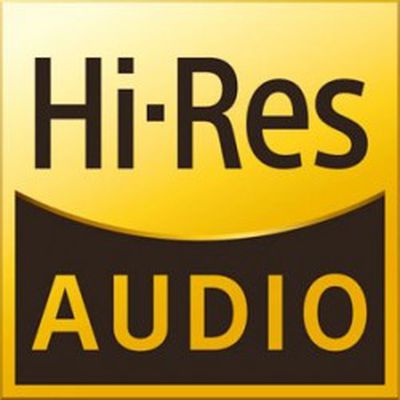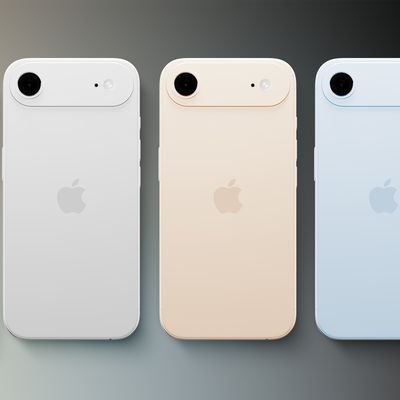Apple Once Again Rumored to Be Developing High-Resolution Audio Formats
 Apple is reportedly preparing to launch new higher-quality audio streaming in 2016, according to industry sources who spoke to Mac Otakara at this weekend's Portable Audio Festival in Tokyo.
Apple is reportedly preparing to launch new higher-quality audio streaming in 2016, according to industry sources who spoke to Mac Otakara at this weekend's Portable Audio Festival in Tokyo.
According to several insiders familiar with Apple, whose products are exhibited at PORTABLE AUDIO FESTIVAL 2015, the company has been developing Hi-Res Audio streaming up to 96kHz/24bit in 2016.
The Lightning terminal with iOS 9 is compatible up to 192kHz/24Bit, but we do not have information on the sampling frequency of Apple Music download music.
The report also claims many audio equipment manufacturers are preparing their own third-party Lightning cables in anticipation of Apple's move toward improved audio quality.
Apple has long been rumored to be looking to introduce higher-quality audio formats for iTunes Store downloads and perhaps also Apple Music streaming. A year and a half ago, music blogger Robert Hutton claimed Apple was working to roll out high-resolution audio for the iTunes Store, and Mac Otakara made similar claims about an HD Audio format and new hardware being planned for release alongside iOS 8 later that year.
An even earlier flurry of rumors came in 2012 after Neil Young revealed that he and Steve Jobs had discussed ideas for improving the audio quality of iTunes Store content. Young ultimately went on his own in an effort to increase the quality digital music, releasing his PonoPlayer in early 2014.
Popular Stories
Apple will launch its new iPhone 17 series in two months, and the iPhone 17 Pro models are expected to get a new design for the rear casing and the camera area. But more significant changes to the lineup are not expected until next year, when the iPhone 18 models arrive.
If you're thinking of trading in your iPhone for this year's latest, consider the following features rumored to be coming...
A new Apple TV is expected to be released later this year, and a handful of new features and changes have been rumored for the device.
Below, we recap what to expect from the next Apple TV, according to rumors.
Rumors
Faster Wi-Fi Support
The next Apple TV will be equipped with Apple's own combined Wi-Fi and Bluetooth chip, according to Bloomberg's Mark Gurman. He said the chip supports ...
Apple's next-generation iPhone 17 Pro and iPhone 17 Pro Max are only two months away, and there are plenty of rumors about the devices.
Below, we recap key changes rumored for the iPhone 17 Pro models.
Latest Rumors
These rumors surfaced in June and July:A redesigned Dynamic Island: It has been rumored that all iPhone 17 models will have a redesigned Dynamic Island interface — it might ...
Apple does not plan to refresh any Macs with updated M5 chips in 2025, according to Bloomberg's Mark Gurman. Updated MacBook Air and MacBook Pro models are now planned for the first half of 2026.
Gurman previously said that Apple would debut the M5 MacBook Pro models in late 2025, but his newest report suggests that Apple is "considering" pushing them back to 2026. Apple is now said to be...
iPhone 17 Pro and iPhone 17 Pro Max models with displays made by BOE will be sold exclusively in China, according to a new report.
Last week, it emerged that Chinese display manufacturer BOE was aggressively ramping up its OLED production capacity for future iPhone models as part of a plan to recapture a major role in Apple's supply chain.
Now, tech news aggregator Jukan Choi reports...
The long wait for an Apple Watch Ultra 3 is nearly over, and a handful of new features and changes have been rumored for the device.
Below, we recap what to expect from the Apple Watch Ultra 3:Satellite connectivity for sending and receiving text messages when Wi-Fi and cellular coverage is unavailable
5G support, up from LTE on the Apple Watch Ultra 2
Likely a wide-angle OLED display that ...
In select U.S. states, residents can add their driver's license or state ID to the Wallet app on the iPhone and Apple Watch, providing a convenient and contactless way to display proof of identity or age at select airports and businesses, and in select apps.
Unfortunately, this feature continues to roll out very slowly since it was announced in 2021, with only nine U.S. states, Puerto Rico,...
The iPhone 17 and iPhone 17 Air will be available in a total of nine color options, according to new information coming out of Asia.
The iPhone 17 Air's expected color options.
According to the leaker going by the account name "yeux1122" on the Korean blog Naver, accessory manufacturers are now producing camera protector rings for the iPhone 17 and iPhone 17 Air in colors to match their...
 Apple is reportedly preparing to launch new higher-quality audio streaming in 2016, according to industry sources who spoke to Mac Otakara at this weekend's Portable Audio Festival in Tokyo.
Apple is reportedly preparing to launch new higher-quality audio streaming in 2016, according to industry sources who spoke to Mac Otakara at this weekend's Portable Audio Festival in Tokyo.



















